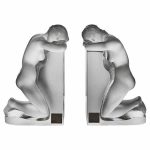No More Monkey Business
After more than 40 years of fun, it’s time to leave the playground.

Children climb on monkey bars. Photo by George Rinhart/Corbis via Getty Images
By Paul Kennedy
Joseph Dessert was a lumberman from Quebec, Canada, who made his living cutting down the very things that fascinated me the most while growing up: towering white pines. Of course, Dessert was long gone by the time I came to be. Even so, my formative years were shaped by him and what survived his axe.
Dessert came to Wisconsin in 1840 and began lumbering shortly thereafter around my hometown, which was conveniently located on the Wisconsin River. Old growth pines were majestic and plentiful throughout the northern half of the state and the river made moving them relatively easy. Dessert’s sawmill prospered and he made a fortune.
In return, he gave my hometown a library, naming it after himself. During high school, I spent many nights in the Joseph Dessert Library not studying. Built in 1898, the library is now a historic landmark, no thanks to my lackadaisical approach to academics.
And while I enjoyed the library as much as anyone could while wishing he was somewhere else, it was Dessert Park, a short walk from my childhood home, that enthralled me. Nestled among a small stand of giant white pines, not far from the hockey rink, baseball fi eld and small stone lodge, I discovered the secret of life. My life, anyway.
Dessert and his Bunyanesque band of burly axe-swingers, and many more like them, clear-cut the old-growth forests of Wisconsin. In 1900, Wisconsin led the nation in timber production. By 1915, the forests were gone. Such was the cost of progress.
Even so, it was among the few statuesque survivors that I found what every kid needs: play. The Dessert Park playground had swings and a merry-go-round and, wonder of wonders, monkey bars. Simple yet brilliantly conceived, monkey bars unlocked a world of possibilities for a kid. How was I to know they would be a metaphor for my life?
When Sebastian “Ted” Hinton, the inventor of the monkey bars, was a kid just like me, his dad, a Princeton mathematician, built a cubic bamboo grid in the family’s backyard. He wanted to teach his children to “visualize space in three dimensions as they moved through the structure.” Fat chance. Instead, the Hinton kids just wanted to climb and hang from the bamboo like, well, monkeys.
One day years later, Ted Hinton built a variation of his father’s design—a cubic metal playground frame, “a kind of forest top through which children may play in a manner somewhat similar to that of a troop of monkeys.” Hinton, a patent attorney with a far better understanding of fun than his old man, was awarded the fi rst U.S. patent for his “jungle gym.” With that, the monkey bars were born, Oct. 23, 1923.
Climbing, Hinton argued in his fi rst monkey bars patent, is natural, and he was right. It’s what I did endlessly on the monkey bars at Dessert Park. Trying to reach my soaring white pine pals, I’d climb to the top bars and stand, balancing fearlessly as if a member of The Flying Wallendas, a daredevil with no net. Or, wanting a diff erent view of my small world, I’d dangle upside down from a metal bar, with one hand holding my black-rimmed glasses in place. Staggering home with a concussion was one thing, but going home with broken glasses, well, that kind of pain I wasn’t interested in.
Research has found that climbing is good for a kid. It builds strength, improves coordination and helps develop social skills. It’s also a boatload of fun. Who knew fun was so benefi cial to your development?
To be honest, I did. It’s how I got here. To this very moment. At the end of my monkey business.
For more than four decades, I’ve been doing nothing more than climbing monkey bars in a diff erent playground. Since 1981, I’ve been putting one word after another as a newspaper reporter, a book publisher or a magazine editor. Between you and me, all of it was play, something I planned on doing only until I had to grow up and take on a real job, like selling insurance or hanging drywall.
Instead, I got to play with words, telling thousands of stories for a living, all the while holding tight to a childlike sense of curiosity and wonder as if they were metal monkey bars.
Only now, my monkey business is over. I’m retiring. By the time you read this, I will have left this playground, mostly intact, with no serious head injuries or broken glasses, but with an awful lot of wonderful memories.
Thank you, Mr. Dessert, for the childhood playground. And thank all of you for this one. It’s been a blast.
![]()

Paul Kennedy, now retired, was the Editorial Director of Kovels Antique Trader.




Leave a Reply
You must be logged in to post a comment.